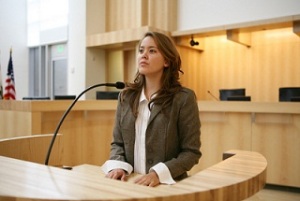Last week, the Maryland Court of Special Appeals decided Logan v. LSP Marketing, a lead paint case in Baltimore City.
Facts of Logan v. LSP Marketing
This case involves a lead paint poisoning lawsuit filed by Jamal Logan against 22 defendants, including LSP Marketing Corporation and Basilio Lachica. LSP filed a motion for sanctions seeking dismissal of the case or exclusion of all but one of Logan’s experts from testifying at trial. The court granted the motion for sanctions by excluding all but one of Logan’s experts, but denied the request for dismissal. Logan filed a motion to revise the court’s order, which was denied without a hearing. The case proceeded to trial, but Logan was unable to establish a prima facie case under the parameters of the court’s order. Logan requested a postponement of trial, which was denied, and one of the defendants moved for summary judgment. The court granted summary judgment as to all claims asserted against all defendants by Jamal Logan, and this appeal followed.
You Have to Answer Discovery
Here, Plaintiff did not answer discovery. Defense lawyers, who I believe were the Leder Law Group in D.C., filed a motion to compel. In what is regrettably a common practice in Maryland, the motion to compel got Plaintiff to answer the discovery and their response was “hey, this is moot, we answered now.”  Defendant’s counsel, to their credit, wrote a reply saying the answers were insufficient in part because Plaintiff wrote garden-variety broad designations of experts. The motion was granted, but a more detailed expert designation never came.
Defendant’s counsel, to their credit, wrote a reply saying the answers were insufficient in part because Plaintiff wrote garden-variety broad designations of experts. The motion was granted, but a more detailed expert designation never came.
So before trial, Defendant sought to strike the experts. Baltimore City Judge Kaye A. Allison struck Plaintiff’s experts from testifying at trial. When the case went to trial, Judge John P. Miller denied the motion to reconsider Judge Allison’s motion. Which left the Plaintiff with no case and Judge Miller granted the Defendant’s motion for summary judgment.
More Thoughts
Normally, insufficient expert responses don’t lead to such severe sanctions because Food Lion v. McNeill tells us that personal injury lawyers in Maryland are not permitted to sandbag the opposing party with discovery deficiencies that can be easily remedied. So when it comes up at trial, the judge says, “Well, you should have filed a motion.” Here, Defendant’s lawyers filed a motion, and it killed the Plaintiff’s case.
One big issue in the opinion is whether the court has to grant a motion that is practically, but not technically, dispositive of the case. The court said a hearing is required only in cases that are dispositive, not for all intents and purposes dispositive as is the case here.
Personally, I think it is much ado about nothing. If the trial court gets reversed on appeal on this, I find it unlikely the Court will change their tune after a hearing. Although, actually, this happened to me once. I got a summary judgment against Baltimore City, and the court ruled that there should have been a hearing on the motion. The case got sent back down, and the ruling was overturned. The difference? The judge who ruled in my favor had retired.
This ruling does not apply to many medical malpractice cases because the expert issues have to be laid out with such specificity long before the plaintiff’s lawsuit is filed. But blanket designations are a rather common practice for attorneys on both sides of the aisle and the lesson is if the other lawyer holds your feet to the fire, you had better give detailed expert answers or you will risk having your expert’s struck.
 Maryland Injury Law Center
Maryland Injury Law Center

